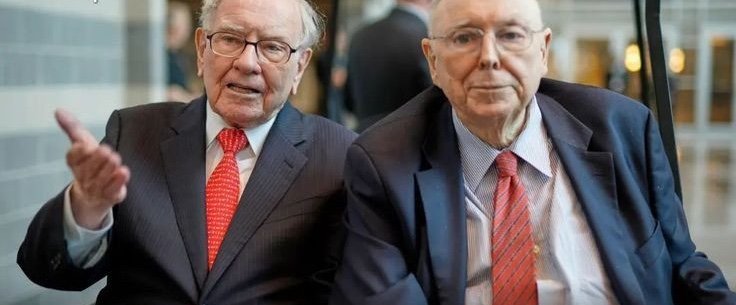I recently came across the concept of relational intelligence, described as the ability to understand, navigate, and effectively manage interpersonal relationships. I think this is how trust is built, inclusion is felt, and where safety becomes the norm rather than the exception.
Perhaps it’s time for leaders to turn to their HR partners and ask the deeper, more human questions:
- Do my team members, especially those with less positional power, feel seen, heard, and valued?
- How do I react when someone gives me hard feedback?
- Have I made space lately for challenge, dissent, or alternative viewpoints?
- Am I showing people I care about who they are, not just what they produce?
These are not just performance questions, they are relational ones, and they might be the key to unlocking safer, stronger teams.
Coaching isn’t magic
Alan Mulally, the legendary former CEO of Ford and Boeing Commercial Airplanes, is often held up as one of the most effective leaders of our time. His approach was grounded in humility, discipline, transparency, and an unwavering commitment to developing people. Marshall Goldsmith, the world-renowned executive coach, once shared a simple but profound lesson he learned from Mulally:
““If you work with great, dedicated, committed leaders who want to keep getting better, your coaching process will ALWAYS work. If you work with leaders who have no real interest in improving, your coaching process will NEVER work.””
This observation cuts through all the noise about methods, credentials, and frameworks. I think at its core, growth requires a genuine desire to change, and no amount of expertise or clever process can make someone evolve if they don’t want to.
Matter of fact
I’m sorry to say it, but education and training alone do not equal intelligence. As a DEIB advocate, I believe that diversity intelligence deserves to sit alongside intellectual intelligence (IQ), emotional intelligence (EQ), and cultural intelligence (CQ). Too often, people misunderstand the differences across and within cultures. To treat all employees fairly, honestly, and with integrity, we need to develop the intelligence to understand the full picture: IQ, EQ, CQ—and the policies, rules, and laws that shape them.
I think both formal leaders and those leading without a title must learn to recognise difference, not as a threat or obstacle, but as a reality of the modern workplace. Being different doesn’t mean being less capable, and it shouldn’t get in the way of performance. I encourage you to reflect, look at your own actions, and examine your biases, because that’s where inclusion starts.
Executive coaching
I see coaching as the ability to further your learning and development by understanding your goals, challenging you, giving you timely feedback, and offering you my support. My executive coaching is a powerful catalyst for your personal and professional growth. As you are already an exceptional performer, my executive coaching will help you uncover blind spots, strengthen your leadership skills, and focus on specific areas to optimise your performance. I will be your trusted partner, guiding you through a process towards a deeper understanding of yourself, sharpening your decision-making abilities, supporting your transition into a new role, and preparing you to take on more responsibilities.
Are you ready to embark on a transformative journey that fosters continuous learning, self-mastery, and the realisation of your career objectives? If so, contact me via email to schedule a free 30 minute discovery meeting.
Face the facts
Organisations navigating change need to slow down, examine their assumptions and avoid snap judgments that can alienate employees. I think building shared psychological safety means ensuring everyone feels heard and considered, not just the loudest or most senior voices. Leaders need to be willing to sit with discomfort, recognising that genuine transformation often challenges their own perspectives. Too often, the emotional burden of change is outsourced to middle managers or HR teams, who are expected to absorb employees’ fears and frustrations without adequate support themselves. While HR typically serves the strategic interests of the organisation, it’s crucial to balance this role with a genuine commitment to employee wellbeing and ethical practices.
Focus your attention
Many people think leadership is about giving orders and always having the answer. I thnk real leadership is about making people feel safe, coaching and inspiring others to grow by holding them accountable. It also means listening with full attention, leading with compassion, and knowing when to take a step back.
It's OK
Emotional intelligence isn’t just about being kind or approachable, it’s about being powerful with people, not over them. And that’s the kind of leadership organisations need if they are serious about meaningful, sustainable transformation. I think this is because in times of transformation, your presence matters as much as your strategy.
Focusing on practical aspects
Leadership today is not just about vision, strategy, or performance metrics, it’s about presence. And not just the kind that shows up in meetings or quarterly reports, but the kind that’s felt by the people around you. Authentic leadership is not about being universally liked, it's about being consistent, grounded, and brave enough to embody values even when they challenge the norm.
I think in transformation contexts where uncertainty is high and morale can be fragile this kind of leadership becomes critical. It stabilises teams without sugarcoating reality. It encourages innovation without glossing over fear, and it helps people stay resilient through the messy, human process of change.
The tension
I think authentic leadership doesn’t always land softly. It can challenge cultures that are resistant to change. It can unsettle environments where vulnerability feels risky. And that’s okay. Emotional intelligence isn’t about being agreeable, it’s about being grounded, intentional, and human. It’s about holding space for discomfort anddriving momentum forward. If you are leading transformation, you should expect a bit of friction as that’s not failure, it’s the work.
This is a critical factor
Leaders with high emotional intelligence (EQ) don’t just command respect they also create connection. Their ability to self-regulate, empathise, listen actively, and respond with intention builds psychological safety, trust, and long-term engagement within their teams. Some people call them soft skills but in reality they are strategic skills.
Emotional intelligence also has a disruptive edge, and when practiced with authenticity, it can surface discomfort in environments resistant to change. I think people may resist vulnerability, they may distrust candor, and in many legacy organisations, empathy can even be misread as weakness. This is why senior leaders must not only model emotional intelligence, but also be prepared to manage the disruption it can cause.
““Nothing is given, everything is earned.””
Choosing meaning with intention
Leaders are constantly required to interpret complex, ambiguous situations. Whether it's a missed target, a team conflict, or a career crossroads, the story you tell yourself about what’s happening will either empower you or hold you back.
As a coach, I help leaders explore the stories they are living by:
· Is this challenge a threat, or a signal for growth?
· Is that tension in your team a problem, or an invitation to lead differently?
· Is your current frustration a dead-end, or a turning point?
Reframing isn’t about denial or false optimism. It’s about choosing meaning with intention. It’s about emotional mastery. It’s about creating space to respond rather than react. And I think it’s one of the most powerful tools in a leader’s toolkit. If you are at a place where your old stories are not serving you, maybe it’s time to rewrite them, with support from a coach. Contact me via email to book a free 30 minute discovery call.
Look at it differently
We can’t control everything around us, but we can control the meaning we attach to it. I think by changing the meaning, we often change how we see the situation. From a leadership perspective when you change the meaning, you will shift your emotion. And that change in your emotion will you change how you lead.
As a coach, I help leaders step back, reframe, and see with fresh eyes. Not with false positivity, only with intention and clarity. This is because sometimes, a new perspective is all it takes to unlock your next move. Are you ready for a different kind of conversation? Contact me via email to book a free 30 minute discovery call.
Positive impacts
In many organisations, leadership conversations still default to top-down communication. Meetings become one-way updates, with leaders doing most of the talking and very little listening. The focus is often on delivering information rather than inviting dialogue. I think real conversations, the kind that shifts thinking is a two-way street. It asks everyone at the table to stay open, curious, and willing to let go of fixed positions when new insight emerges. The challenge is that many workplace structures still reward authority over inquiry. And when maintaining control is prioritised over mutual understanding, the space for real dialogue and the transformation it can bring, shrinks.
Setting the stage
How do you lead others who don’t share the same life experiences as you?
The challenge for leaders is to take everyone on the journey, not just those who are like them. My definition of leadership is when others choose to follow you in the absence of power, authority, or position, because they believe in you and the direction you want to take them. I think many people report to bosses, but not necessarily to leaders. Leaders may not hold formal power, but they have the influence to inspire and move people. As leaders, we must invest time in learning about the lived experiences of others.
What game are you playing?
Is your goal to always have the right answer and to be the smartest person in the room, the quickest to respond, the one who “knows”? Or is your game to build the capacity to generate the right answers, again and again, in changing contexts, and under new pressures?
One is about performance in the moment.
The other is about sustainable growth.
One gives you a short-term edge.
The other builds long-term adaptability.
Leaders who chase the first become dependent on certainty.
Leaders who invest in the second become architects of resilience for themselves, their teams, and their organisations. I think it’s because in a complex world, the prize doesn’t go to the one with the fastest answer. It goes to the one who can stay curious, keep learning, and co-create better answers over time. So, again: What game are you really playing?
Navigating a minefield
I work with leaders and senior executives to help them lead employees from marginalised and underrepresented backgrounds with greater empathy and confidence. I'm not a performer, I’m genuine, grounded, and deeply curious about people. I build meaningful connections because I truly care about getting to know the individuals I work with. This curiosity has shaped my life and career. I've been fortunate to work across learning and development, consulting, DEI implementation, and coaching. I create a safe, non-judgmental space where people can take off their masks, speak honestly, and share what’s truly on their hearts, knowing they will be met with respect and understanding.
Deep connections
My mission is to support leaders and senior executives in creating inclusive environments where employees from marginalised and underrepresented backgrounds can thrive. Curiosity about people has shaped my life and career, I build deep, genuine connections because I care deeply about learning from and understanding those I work with. With a background in learning and development, consulting, DEI implementation, and coaching, I bring a multifaceted approach to leadership development. I create safe, judgment-free spaces where people can remove their masks, speak openly, and feel truly seen and heard.
““A bird does not sing because it has an answer. It sings because it has a song.”
”
EQ is interesting
Emotional intelligence (EQ) is so much more than just managing your emotions. It’s the ability to pause when something triggers you and ask, “What deeper pain or belief is being touched right now?” EQ is the understanding that life constantly tests us, and that not everything is meant to be held onto. It’s not about suppressing your feelings; it’s about facing them with honesty, healing what hurts, and turning your struggles into strength.
Human tendency
In today’s complex and interconnected world, the organisations that thrive are those that recognise diversity not as a checkbox, but as a strategic advantage. Inclusive leadership means more than inviting different voices to the table, it means actively listening to them, valuing them, and adapting in response. The future belongs to companies that embrace difference as a strength, where leaders have the courage to be vulnerable and the emotional intelligence to foster psychological safety. These leaders understand that innovation flourishes when people feel safe to take risks, share ideas, and be their authentic selves, without fear of judgment or exclusion. I think this isn’t just about doing what’s right; it’s about doing what works.
Rhythm versus ritual
Leadership development is often seen as a box to tick, an inspiring workshop here, a high-impact coaching session there. Research consistently shows that without deliberate follow-through, even the most well-designed training programs fail to drive lasting behavioural change. So the real question becomes: How do leaders ensure they are applying what they have learned?
I think for leadership training to stick, feedback must become part of the culture, not just an annual event. Leadership isn't about perfection, it's about progress, and therefore, progress is far easier to track when you invite honest input from those around you.





















